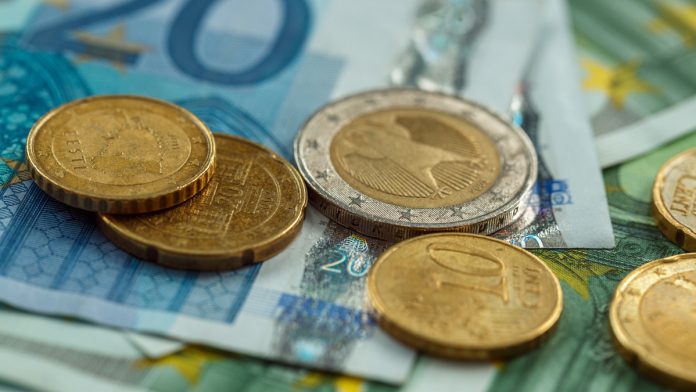The pound moved cautiously higher versus the euro on Monday, the day prior to the Brexit vote in Parliament. The pound euro exchange rate climbed to a peak of €1.1268 before easing into the close. Sterling was once again moving higher in early trade on Tuesday.
| What do these figures mean? |
|---|
|
When measuring the value of a pair of currencies, one set equals 1 unit and the other shows the current equivalent. As the market moves, the amount will vary from minute to minute. For example, it could be written: 1 GBP = 1.13990 EUR Here, £1 is equivalent to approximately €1.14. This specifically measures the pound’s worth against the euro. If the euro amount increases in this pairing, it’s positive for the pound. Or, if you were looking at it the other way around: 1 EUR = 0.87271 GBP In this example, €1 is equivalent to approximately £0.87. This measures the euro’s worth versus the British pound. If the sterling number gets larger, it’s good news for the euro. |
The pound gained in the previous session as investors look ahead to today’s Brexit vote. UK Parliament will vote on whether they accept or reject Prime Minister Theresa May’s draft withdrawal agreement from the EU.
After Theresa May delayed the vote in December, she was hoping on further reassurances from Brussels to help her get the deal over the line. This hasn’t been the case and Brussels have remained firm that there is nothing more to offer. This has increased the chances of Parliament rejecting the deal.
Political analysts do not expect the vote, which was delayed in December, to be accepted by ministers. Parliament has taken measures for a no Deal Brexit to be avoided as well. Reports have also suggested that Article 50 will be extended. An extension of Article 50 would mean more time to negotiate a deal or could lead to Brexit just not happening at all. Both of which are beneficial for the pound. With the chances of a hard, no deal Brexit slipping and the probability of an extension of Article 50, investors are more relaxed heading into this Brexit vote. As a result, the pound moved higher.
Why is a “soft” Brexit better for sterling than a “hard” Brexit?
A soft Brexit implies anything less than UK’s complete withdrawal from the EU. For example, it could mean the UK retains some form of membership to the European Union single market in exchange for some free movement of people, i.e. immigration. This is considered more positive than a “hard” Brexit, which is a full severance from the EU. The reason “soft” is considered more pound-friendly is because the economic impact would be lower. If there is less negative impact on the economy, foreign investors will continue to invest in the UK. As investment requires local currency, this increased demand for the pound then boosts its value.
Eurozone GDP To Weigh On Euro?
The euro has remained resilient over the past week, despite weak eurozone stats and a cautious European Central Bank. The minutes to the ECB monetary policy meeting showed that the ECB considered that risks to the region’s economic growth were starting to build to the downside. This led investors to question the ECB ‘s intentions to raise interest rates later in the year. The euro remained steady even as the perceived chances of a rate rise fell.
Why do raised interest rates boost a currency’s value?
Interest rates are key to understanding exchange rate movements. Those who have large sums of money to invest want the highest return on their investments. Higher interest rate environments tend to offer higher yields. So, if the interest rate or at least the interest rate expectation of a country is relatively higher compared to another, then it attracts more foreign capital investment. Large corporations and investors need local currency to invest. More local currency used then boosts the demand of that currency, pushing the value higher.
Today investors will be watching Eurozone GDP data closely. Analyst are predicting that economic growth in the region is has fallen from 2.2% to a rather lacklustre 1.5%. This comes after industrial production declined sharply in Germany and France, raising concerns of recession these countries.
This publication is provided for general information purposes only and is not intended to cover every aspect of the topics with which it deals. It is not intended to amount to advice on which you should rely. You must obtain professional or specialist advice before taking, or refraining from, any action on the basis of the content in this publication. The information in this publication does not constitute legal, tax or other professional advice from TransferWise Inc., Currency Live or its affiliates. Prior results do not guarantee a similar outcome. We make no representations, warranties or guarantees, whether express or implied, that the content in the publication is accurate, complete or up to date. Consult our risk warning page for more details.
This article was initially published on TransferWise.com from the same author. The content at Currency Live is the sole opinion of the authors and in no way reflects the views of TransferWise Inc.





